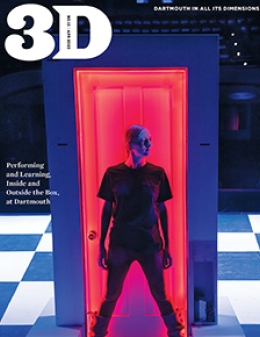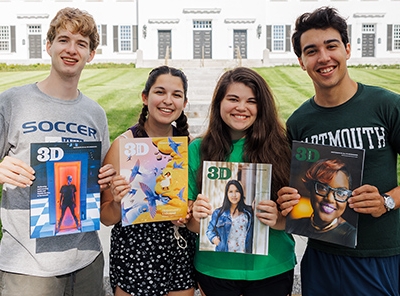The Department of German Studies and Dartmouth Engineering Join Forces to Teach Environmental Engineering and Sustainability in Berlin
Dartmouth's foreign study and language off-campus programs—more commonly known as FSPs and LSAs—have long been a signature offering, transporting students far from Hanover to locations around the globe, one off-campus term at a time.
Among the newest: "Green City, Sustainable Engineering and Full-Immersion German in Berlin," a joint effort of the Department of German Studies and Dartmouth Engineering. It's a pilot program blending study in German language and culture with the opportunity to earn engineering credits. This first-of-its-kind program is co-led by Associate Professor of German Petra McGillen and Professor of Engineering Petra Bonfert-Taylor.
The Green City program is one example of how Dartmouth faculty have been collaborating on new interdisciplinary programs to complement the curriculum and build on traditional FSP and LSA offerings.
The push for the combined program in German and engineering came from the students themselves, McGillen and Bonfert-Taylor say. "Students kept coming to me to ask, 'Can't you start a program that combines a foreign study experience with engineering?' And the same students came to Petra McGillen to say, 'We're interested in German, but we need engineering credits, can't you organize something?' So, we did some surveys and found that there's a great need and desire for a program like this."
In Berlin, students live with host families and have the choice of three of four courses: a fast-track German language course, a course in German history and culture, and, for engineering credit, ENGS37: Introduction to Environmental Engineering and ENGS45: Sustainable Urban Systems. They also participate in field trips and other enrichment activities that showcase the importance of language and cultural understanding to effective engineering solutions.
On a day trip to Görlitz—a town in the former East Germany in a region shaped by lignite coal mining—students toured surviving pre-World War II architecture and visited a remediated mine site where they spoke with a former miner who had lost his livelihood in the transition to cleaner energy.
"Hearing our guide speak with so much nostalgia about his work was incredible," Stephen Veatch '24 says of the experience. "It was so moving to see how people can feel left behind in the transition from one predominant energy source to alternatives."
"It was one of those moments when German culture and political history and sustainable engineering topics came together in this really eye-opening way," McGillen says. "The students immediately understood that in any energy transition you need to be aware of the profound social implications and find ways to mitigate them."
Adapted from an article that originally appeared on the Dartmouth News site in May 2022.




